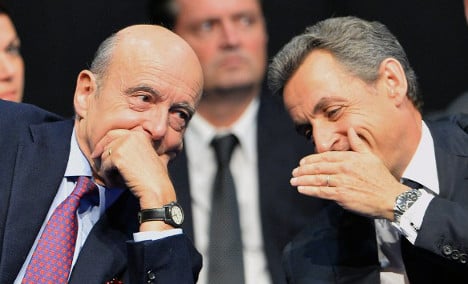In an interview with weekly magazine Marianne, she also claimed she has been subjected to death threats since she gave evidence in an earlier case involving her former boss.
A new book, ‘Sarko Killed Me’, contains comments from a magistrate who was tasked with investigating the Bettencourt family dispute in 2010.
She said that the former nurse told her clerk she had seen Sarkozy receiving money for his presidential election campaign in 2007.
“When I was interviewed by the magistrate Isabelle Prévost-Desprez, I didn’t talk about envelopes being handed to Nicolas Sarkozy, nor to anyone else,” she said. “I have nothing to hide and I’m an honest woman. I don’t want my comments to come back on me. This affair has already caused me enough worries.”
“I’ve received death threats,” she said. “I’ve been made to understand that as a result of my statement in the Banier-Bettencourt affair, my body will be found in the river Seine.”
The Banier-Bettencourt affair involved a charge from Liliane Bettencourt’s daughter, Françoise, that the billionaire’s close friend, photographer François-Marie Banier, had abused the 88-year-old’s frailty for financial gain.
The former nurse’s comments followed a strongly-worded denial from the Elysée Palace on Wednesday, the official residence of the president, which called the claims “scandalous, unfounded and untrue.”
The president of Sarkozy’s UMP party, Jean-François Copé, supported the Elysée’s remarks, saying he was “profoundly shocked by these allegations.”
“The manner in which this has been said by Mrs Prévost-Desprez is bizarre, just a few months from the presidential elections,” he said. “This feels more political than anything else.”
Martine Aubry, who is campaigning to be the Socialist party’s presidential candidate, told RMC radio on Wednesday that while she didn’t understand why Prévost-Desprez hadn’t revealed this information earlier, she thought a new inquiry should be opened.
“If there’s a new piece of information or an allegation that becomes public a new inquiry should take place,” she said. “That’s what we should expect in a country that’s democratic.”


 Please whitelist us to continue reading.
Please whitelist us to continue reading.
Member comments